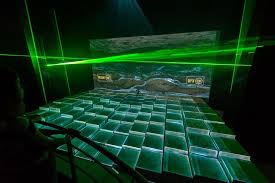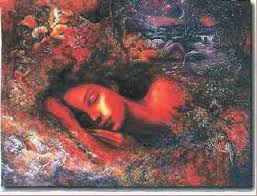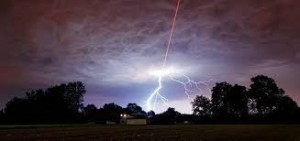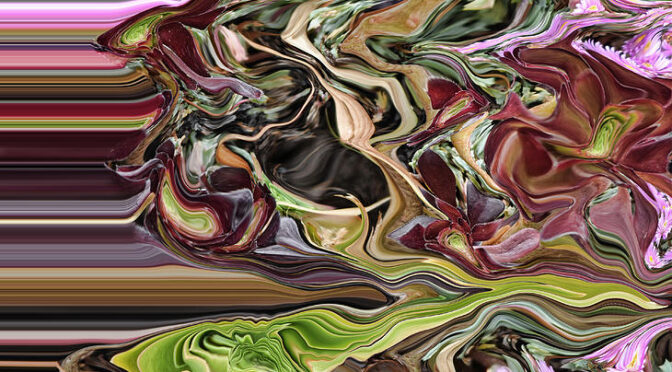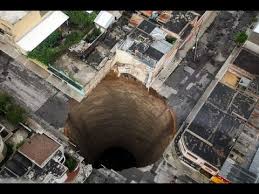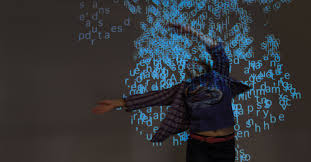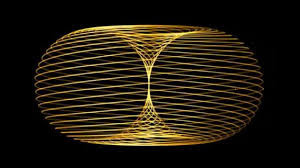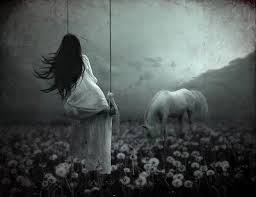Pretend that you are a fine actor, playing in a multidimensional theater, so that each role you take attains a vitality far surpassing the creative powers of any ordinary play.
Each of us is embarked upon such an endeavor. We lose ourselves in our parts. We are involved in a kind of creative dilemma, since in a manner of speaking we confuse ourselves as the actor with the character we play so convincing that we are fooled.
We say: “I must maintain my individuality after death, ” as if after the play the actor playing Hamlet stayed in that role, refused to study other parts or go on in his career, and said: “I am Hamlet, forever bound to follow the dilemmas and the challenges of my way. I must upon maintaining my individuality.
In the dream sate the actors become aware to some extent of the parts they play, and sense the true personal identity that is behind the artist’s craft. It is important to remember that we impose a certain kind of “artificial” sense of exaggerated continuity even to the self we know. Our experience changes constantly, and so does the intimate context of our life — but we concentrate upon points of order, in our terms, that actually serve to scale down the context of our experience to make it more comprehensible. There are no such limits naturally set about our consciousness.
We have a mass psychological environment that forms our worldly culture, and corresponds to a worldly stage set in which experience than occurs. Certain psychological conventions act as props. There are, then, more or less formal psychological arrangements that are used as reference points, or settings. We group our experience within those arrangements. They serve to shape mental events as we physically perceive them.
In our lifetimes our experience must be physically felt and interpreted. Despite this, however, events spring from a non-physical source. Our recalled dreams are already interpretations of other non-physical events.
Putting it simply, our actual experience is far too vast for us to physically follow. Our particular kind of consciousness is the result of specialized focus within a particular area. We imagine it to be “absolute,” in that it seems to involve an all-exclusive state that includes our identity as we think of it — only we give it boundaries like a kingdom. It is, instead, a certain kind of organization that is indeed inviolate even while it in itself a portion of other kinds of consciousnesses, with their own points of focus. Our body itself is composed of self-aware organizations of consciousness that escape our notice and deal with perceptual material utterly alien to our own ways.
There are affiliations of a most “sophisticated” fashion that leap even the boundaries of the species. We look upon our cultural world with its art and manufacture, its cities, technology, and the cultivated use of the intellectual mind. We count our religions, sciences, archaeologies, and triumphs over the environment, and it seems to us that no other consciousness has wrought what man’s and woman’s has produced. Those “products” of our consciousness are indeed unique, creative, and form a characteristic mosaic that has its own beauty and elegance.
There are organizations of consciousness, however, that leapfrog the species, that produce no arts or sciences per se — yet these together form the living body of the earth and the physical creatures thereon. Their products are the seas upon which we sail our ships, the skies through which our airplanes fly, the land upon which our cities sprawl, and the very reality that makes our culture, or any culture, possible.
Man and Woman are a part of that trans-species consciousness also, as are the plants and animals. Also, part of man’s and woman’s reality contributes to that trans-species organization, but he or she has not chosen to focus his or her practical daily consciousness in that direction, or to identify his or her individuality with it. As a result he or she does not understand that greater natural mobility he or she possesses, nor can he or she practically perceive the natural psychological gestalts of which he or she is a part, that form all of our natural — meaning physical — world.
In dreams this relationship often is revealed. The truth behind such relationships is inherent in all God-Man, God-Woman, Animal-Man, or Animal-Woman legends and mythology. There are connections, then, between man, woman and the animals and the so-called gods, that hint at psychological and natural realities.
Any section of the land has an identity, so to speak, and I am not talking symbolically. Such identities represent the combined organizations of consciousness of land, man, woman, and animal, within any given realm. Simply enough put, there are as many kinds of consciousness as there particles, and these are combined in infinite fashions. In the dream sate some of that experience, otherwise closed to us, forms the background of the dream drama. Our consciousness is not one thing like a flashlight, that we possess. It is instead a literally endless conglomeration of points of consciousness, swarming together to form our validity — stamped, as it were, with our identity.
Whether dispersed, concentrated in a tight grouping, appearing “alone” or flying through other larger swarms, that particular organization represents our identity.
Using an analogy, its “particles” could be dispersed throughout the universe, with galaxies between, yet the identity would be retained. So unknowingly, now, portions of our consciousness mix and merge with those of other species without jarring our own sense of individuality one whit — yet forming other psychological realities upon which we do not concentrate.
In the dream state, animals, men, women, and plants merge their realities to some extent so that information belonging to one species is transferred to others in an inner communication and perception otherwise unknown in our world.
